- California Assembly OKs highest minimum wage in nation
- S. Korea unveils first graphic cigarette warnings
- US joins with South Korea, Japan in bid to deter North Korea
- LPGA golfer Chun In-gee finally back in action
- S. Korea won’t be top seed in final World Cup qualification round
- US men’s soccer misses 2nd straight Olympics
- US back on track in qualifying with 4-0 win over Guatemala
- High-intensity workout injuries spawn cottage industry
- CDC expands range of Zika mosquitoes into parts of Northeast
- Who knew? ‘The Walking Dead’ is helping families connect
Lenovo, Huawei catching up fast with Samsung, Apple
China makes another jump at Mobile World Congress
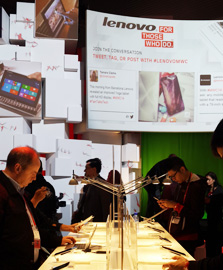
People test new 4G mobile devices in the booth of Lenovo Group, a Beijing-based technology company, during the Mobile World Congress (MWC) in Barcelona, Thursday.
By Choi Kyong-ae
MADRID ― Chinese companies are on track to compete directly with industry leaders such as Samsung Electronics and Apple given their rapidly improving product quality and mobile capabilities, industry sources said Wednesday.
At the Mobile World Congress (MWC) that ran through Thursday in Barcelona, Chinese players such as Huawei Technologies, Lenovo and ZTE all unveiled 4G mobile devices powered by the long-term-evolution (LTE) platform. The advanced LTE platform makes wireless communication speedier and more stable.
“Chinese players are driving their efforts to emerge stronger by applying the LTE platform to their high-end mobile devices. They are also applying a wider display of more than five inches to the devices,” an official at Samsung Electronics told The Korea Times on the sidelines of the annual trade show.
It is increasingly hard to differentiate between Korea and China in terms of hardware capabilities. “Chinese firms are not an emerging threat any longer. They have already emerged as a core threat to big players,” the Samsung official said.
His view was echoed by an official with LG Electronics. “Chinese companies seem to be only one and a half years behind Samsung and LG in terms of hardware technologies,” the LG official said.
The two officials declined to be named due to the sensitivity of the matter.
In a breakthrough for securing the next growth engine, the Chinese government recently started laying out the networks for faster LTE services. Handset makers and telecom companies are now seeking potential business opportunities in the field at home and abroad.
In order to tap into this new opportunity, Huawei is planning to sell its LTE smartphones through LG Uplus in Korea, a significant market for its business strategy.
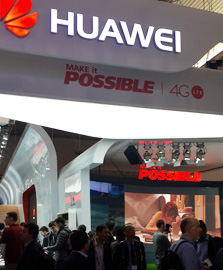
People take a look at the new 4G mobile devices in the booth of China’s Huawei Technologies, during the MWC in Barcelona, Thursday.
(Korea Times photos by Choi Kyong-ae)
At MWC, Huawei unveiled its first wearable device named TalkBand B1 ahead of the release of Samsung’s Galaxy Gear 2 and the Gear Fit. Wristwatch-like smart bands allow users to make calls without taking their phones out of their pocket or bags, while keeping time and offering health-checking features.
To be sure, Chinese players stand to gain from a potential domestic demand for wearable devices. In contrast, high-end makers such as Samsung seem to be feeling the pressure of cutting prices to compete with cheaper Chinese wearables.
“We have an extra mile to go in our brand awareness. But we will ultimately make products that can beat Samsung products. Our competitive pricing policy will help attract price-conscious consumers,” Huawei engineer Ming Liu told The Korea Times at MWC, Wednesday.
Drawn to loud and all-day promotion events, a lot of people dropped by the Chinese booths and some of them said they were surprised by the improved quality of mobile phones and tablets on display.
“Some Chinese smartphones look similar to Samsung or Apple phones. Their functions are not disappointing and the prices are acceptable,” San Diego-based IO Semiconductor CEO Mark Drucker told The Korea Times during the MWC.
Interestingly, the three companies ran their exhibition booths less than five minutes away from Samsung’s mega booth, which covered more than the combined space of the three Chinese players. People flocked to the Samsung booth to experience the flagship Galaxy S5 smartphone and the Gear Fit, a wearable fitness band, released at the MWC.
“By setting up their booths very close to Samsung’s, Chinese players might have intended to say it is only a matter of time before they catch up with Korea (in terms of hardware technology, among others),” an industry executive said.
Lenovo, the second-largest smartphone brand in China after Samsung, unveiled a series of new products ― high-end S-Series smartphones and the Yoga Tablet PC ― at the MWC to attract price-sensitive customers.
Innovations at Samsung have made Lenovo continue to develop new products. Korean consumers are thirsty for innovations and the company may enter Korea to satisfy their demands, Lenovo Vice President J.D. Howard told reporters on Wednesday.
Lenovo’s announcement last month of the acquisition of Google’s Motorola Mobility handset unit is widely expected to boost its presence in the mobile-phone market.








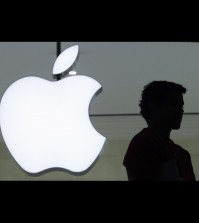
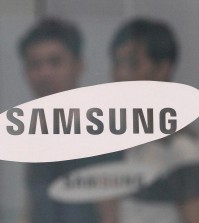
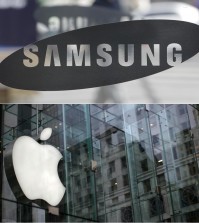





Hang Rhyme
April 11, 2016 at 2:49 PM
Everyone loves it when folks get together and share thoughts. Great site, continue the good work!